'No More Wire Hangers!' Inside the “Mommie Dearest” Scene That Turned a Joan Crawford Film Flop Into a Cult Classic (Exclusive)
In an excerpt from a new book, we learn what really happened in the Faye Dunaway classic
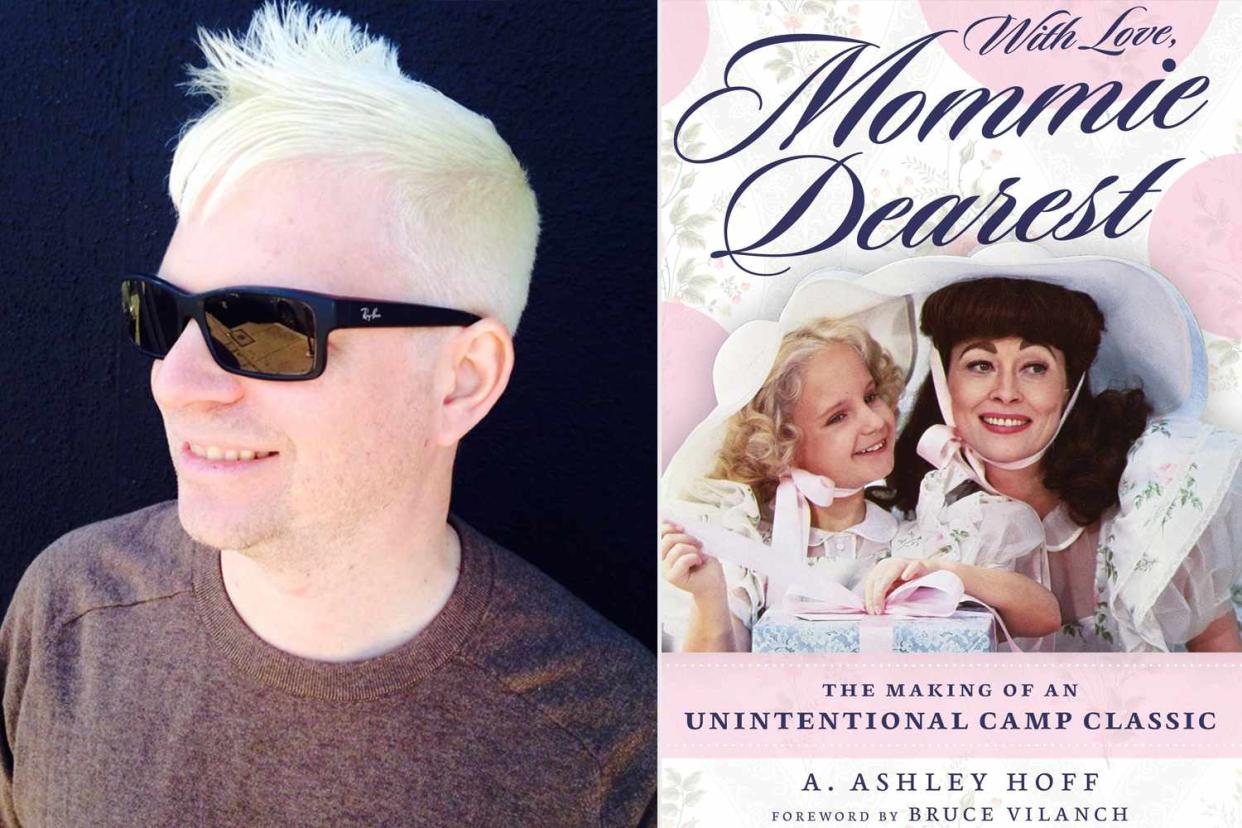
Chicago Review Press; Atila Sikora
'With Love, Mommie Dearest' by A. Ashley HoffJoan Crawford was an icon of Hollywood's Golden Age, beloved until her death in 1977. But her daughter Christine's tell-all memoir of shocking child abuse, Mommie Dearest, threw the doors open on the issue in 1978. The groundbreaking book revealed their home as a battleground between Joan, a controlling alcoholic, and Christine, a fiercely independent survivor who became a voice for childhood abuse victims.
When the film version starring Faye Dunaway came out in 1981, it bombed badly. The lavish, big-budget adaptation was critically panned and even drew unexpected laughter during scenes depicting life in the Crawford household.
Related: Catherine Zeta-Jones Reveals What Kirk Douglas Really Thought of Joan Crawford
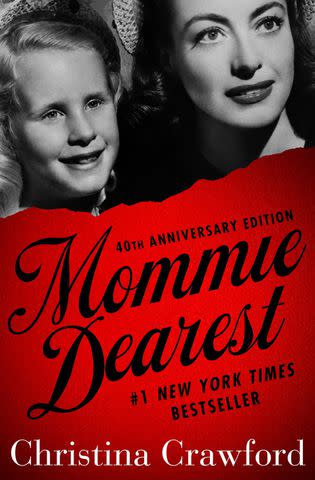
Open Road Integrated Media
'Mommie Dearest' by Christina CrawfordDespite that initial reaction, the movie did become a commercial success and four decades later, it's a cult classic. In new book, With Love, Mommie Dearest: The Making of an Unintentional Camp Classic, author and Hollywood historian A. Ashley Hoff delves into the phenomenon of the movie's release, what makes it so beloved and the still-prevalent issues it explores.
Below, read an exclusive excerpt that gives us a peek behind one of the film's most memorable scenes.
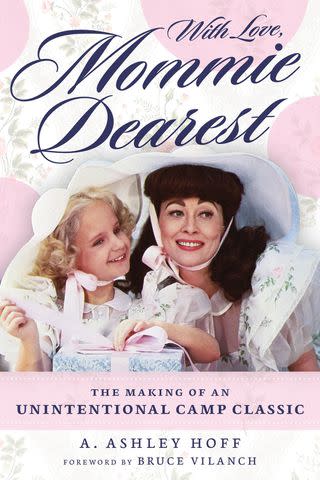
Chicago Review Press
'With Love, Mommie Dearest' by A. Ashley HoffThere is one revealing line of improvised dialogue in this scene referencing Joan Crawford’s own childhood that echoes the abuse she herself might have experienced. Faye, wielding the offending wire hanger, utters a mile-a-minute torrent of words:
“Your room looks like a cheap two-dollar-a-week furnished room in some two-bit backstreet town in Oklahoma!” Mara Hobel’s shrieks almost drown out the line, rendering it almost subliminal. No matter. It’s certainly there in spirit, even if inaudible. It’s the only allusion in the movie to what Joan might have experienced as a child.
Mara Hobel remembered: "There’s one shot where they had, like, a mannequin or—I don’t know what it was. It wasn’t human and it wasn’t me! But for all the other shots it was me. They just layered my back in a thick suede or a leather and cotton, and then they put a T-shirt over me, and then my wardrobe. And then there was a comforter that she had pulled off during that tussle, and that’s where you see the hanger hitting. Although I didn’t feel the sting on my back, I could feel the thumping of the hanger on my back, but no pain. Unfortunately, my tush was not covered and she got me there once, but that’s okay, you know. It happens. The same thing happened with the scissors too."
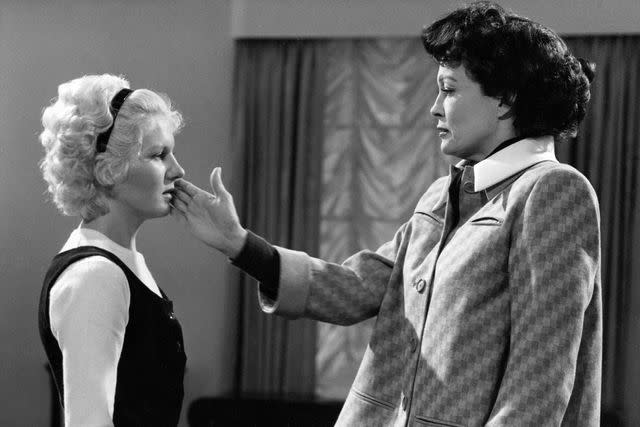
"And that was the other thing. The props department was really trying to come up with these hangers because, at the time, those were thick, black wire hangers. They’re not like the wire hangers that we had in the eighties. So they tried to come up with one that was a little bit softer, and I remember the first couple of takes that we did, when she struck me with it, the whole hanger bent and curved around my back. It was very funny."
Never miss a story — sign up for PEOPLE's free daily newsletter to stay up-to-date on the best of what PEOPLE has to offer , from celebrity news to compelling human interest stories.
"And then they went with a standard hanger, and that’s when they decided to layer me so that they could actually strike me but it wouldn’t hurt. It would just be like a thumping."
Forty years on, Mara Hobel could laugh about the subject. Ironically enough, she wasn’t nearly as traumatized by the scene as Faye Dunaway was and has remained.
“Here’s some inside dirt,” Liz Smith reported in her gossip column. “In the ‘wire coat hanger’ scene where Crawford goes crazy and mercilessly beats the young Christina, actress Dunaway balked. She couldn’t bring herself to carry through on the physical violence and rage. Every time Perry tried to film the scene, Faye drew back from thrashing the little girl."
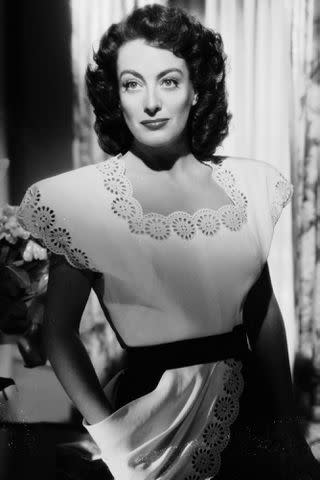
Bert Six/John Kobal Foundation/Getty
Joan Crawford, circa 1944"Finally, the desperate director had a form of Mara Hobel’s body made and dressed it in her pajamas. He called in Faye’s stand-in and had her beat the dummy while Mara cried and sobbed off screen. Perry was nervous about showing Faye the final result last week [in late August or early September, 1981], but the star left the screening room in a thoughtful mood. She said at last, ‘Frank, you were absolutely right. I was wrong. The scene had to be like that!’”
The idea that Faye was holding back the cruelty in the wire hangers scene seems unfathomable to viewers watching the finished movie today, yet that is indeed what happened on the set.
“It was very difficult to shoot,” Jonathan Zimbert remembered, “because Faye understood very well that that character would be seen, a hundred percent, as a monster if she were aggressively to do what was scripted. And so she held back. It was more comical [on the set] than it exists [on-screen]. And she wouldn’t do it, despite encouraging and encouraging and some more encouraging. Eventually, after she was done, there were some inserts done which look kind of hokey because the angles are a little off, but some of it’s in the movie."
“It’s the same with the Bon Ami can. She waves it around in the air. She’s supposed to clock the kid with it, but she just waves it around in the air. She shied away from painting the character so much of a monster.”
Excerpted with permission from WITH LOVE, MOMMIE DEAREST copyright © 2024 by A. Ashley Hoff, published by Chicago Review Press.
With Love, Mommie Dearest: The Making of an Unintentional Camp Classic by A. Ashley Hoff comes out May 7, and is available for preorder now, wherever books are sold.
For more People news, make sure to sign up for our newsletter!
Read the original article on People.
